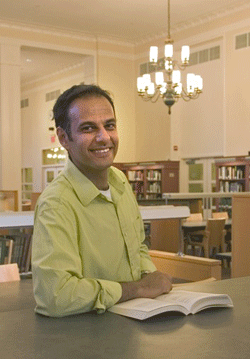
Racism is as American as apple pie, H. Rap Brown/Jamil Abdullah Al-Amin once said, and any cursory observation of American history and culture would conclude that racial hatred and categorization is an integral and predictable fact of American life.
From slavery and the dispossession of Native Americans to Jim Crow, from the internment of Japanese Americans during World War II and the “illegal” immigration debate today, racism continues to play a major role in American political discourse.
Adding to the chorus of racial hatred, the Neanderthal-like specter of Islamophobia has emerged to haunt the landscape.
Since 9/11, pro-Likud ideologues, Christian fundamentalist preachers and media pundits like Ann Coulter have continually poured gasoline on the growing wildfire of anti-Muslim/Arab prejudice by slandering the religion and its followers, with some government officials echoing their line. Former Attorney General John Ashcroft, for example, told columnist Cal Thomas “Islam is a religion in which God requires you to send your son to die for him. Christianity is a faith in which God sends his son to die for you.”
In this socio-political climate, Professor Moustafa Bayoumi wrote his book, “How Does It Feel To Be A Problem: Being Young and Arab in America” to document what effect this racism has on young Muslim Arab Americans.
The book’s title comes from the iconic African American writer W.E.B Du Bois’s famous work, “The Souls of Black Folk”; in effect, linking Islamophobia with the historical anti-black racism. The English professor differentiated the former from the latter during an interview conducted over the telephone, however, by pointing out that it has less to do with relationships and more to do with the moral and practical failures in American foreign policy.
Prof. Bayoumi – born in Switzerland to Egyptian parents and raised in Canada – described his work as an attempt “to humanize people that were being dehumanized” and to chronicle that dehumanization through profiles of seven young Arab Americans.
Bayoumi studied under the late Edward Said at Columbia University and currently teaches English at Brooklyn College, City University of New York. He chose the Arab American community in Brooklyn as his case study. He recalled a smooth process of conducting those interviews and the support he received from the community.
“They identified with what I was trying to do,” he said, adding that he benefited from an excellent publisher and agent.
“How Does It Feel To Be A Problem” is Bayoumi’s first book; his previous body of work includes co-editor of “The Edward Said Reader.” In addition, his essays have appeared in the Village Voice, The London Review of Books, The Nation and “The Best Music Writing 2006.”
Bayoumi, who is alarmed by what he called an “ascendant Orientalism,” felt there was no one approach better than another in dealing with Orientalist figureheads like Daniel Pipes, but doesn’t feel there’s any point in dealing with them head on.
“I’m not interested in debunking Daniel Pipes’ debunking of other people,” he said.
When asked about his own experiences dealing with prejudice, he recalled the usual scenarios familiar to most Americans of Middle Eastern descent – airport screenings, stops at border crossings, etc.
“These things have become almost banal for the Arab American community,” he said, adding that when he gets together with his friends, “we laugh about it, trade these sorts of stories.”
As of now, Prof. Bayoumi’s future plans involve teaching at Brooklyn College and promoting his book; he’ll be appearing at the Borders bookstore on Ford Road in Dearborn, Tuesday, September 2, at 6 pm. He had earlier been scheduled for 8 p.m. but the time was moved forward to accommodate fasting Muslims. As for other projects, he said with a chuckle that he’s got ideas, but won’t be “letting them out.”






Leave a Reply